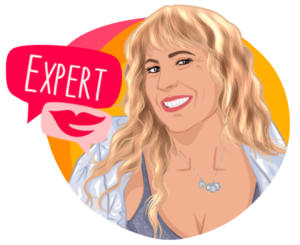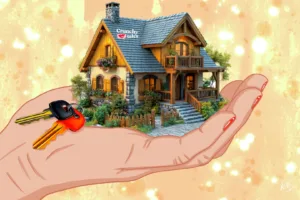Second Act? Starting a Business After 50 Isn’t for Wimps
I was close to 50 when I started my first business. After spending most of my adult career in the corporate world at big brand companies, I set out independently, forming a marketing consulting and content writing business. Despite some speed bumps, a major pandemic, and a recession, it still exists today – albeit in a different form, offering AI-powered services and focusing on industries that are in hyper-growth mode.
It was a bold and strange move when I launched my own company. In those years, most of my peers weren’t giving up their corporate salaries and benefits to pursue their dreams. But now, women (and men) in their 50s are starting businesses at a rapid pace.
Whether because they’re interested in returning to the workforce after raising families or taking care of ageing parents, inspired by a passion they weren’t able to pursue when they had other obligations, or simply done with following corporate rules or aged out of the “traditional” workforce, most of them are ready to embrace new challenges looking for more schedule flexibility and autonomy.
The Reality of Second Act Entrepreneurship
According to a recent study conducted by the Census Bureau, “a 50-year-old entrepreneur is almost twice as likely to start an extremely successful company as a 30-year-old,” at least in the tech field. Why?
According to Inc.com, there are plenty of reasons, but one key factor is the difference between ideas and execution. “Ideas are great, but execution is everything“, writes Jeff Haden. “The same is true with strategy: Strategy matters, but tactics–what you actually do–is what helps companies grow”.
However, although the media leads us to believe that the life of a founder is glamorous and free-spirited, it can sometimes be quite the opposite. P&L stands for profit and loss; not purses and lipstick.
If you invest resources (money and time) in a business, you should expect to make money back—unless your venture is a non-profit (in which case you should break even or have enough to donate to your cause).
Some people after 50 may start businesses purely as passion projects, and that’s fine, just be honest with yourself and others about your motivations and expectations. But if you are committed to starting a profitable/scaleable business later in life you should figure out a proper plan.
Here’s how to leverage your experience and navigate the world of entrepreneurship as a seasoned individual:
- Do your research and thoroughly understand who your product or service is targeted to and what other companies are in that space.
- Create a clear (USP) unique selling proposition that defines how your offering is different from—and better than—the alternatives. Be totally honest! I’ve seen many business owners fall so in love with their idea that they don’t see the world through the eyes of the people who might buy the product or service.
- Talk to other entrepreneurs and subject matter experts to get ideas and inspiration (and sometimes motivation or resources to help you solve thorny problems).
- Develop clear and realistic financial projections and a spending plan so that you don’t blow through all your retirement savings chasing a dream.
- Be prepared to take calculated risks along the way, but be humble enough to walk (or run) away if something is clearly not working.
- Prepare for contingencies. Financial downturns, market shifts, or other factors could creep up quickly.
- Fine-tune your tech skills. Automation can help you operate quicker, save you time and money, and help you market and sell better.
- Hire and trust the right talent. Many entrepreneurs rely on friends and family in the early days, but be sure you’re engaging people with the skills you need to survive and thrive.
How is Starting a Business After 50 Different?
One might argue that we are smarter as we age, but just because you were highly successful in a corporate role or you have a brilliant creative idea (and/or some extra money in the bank) you aren’t guaranteed success. This leads to an important question: How do YOU define success?
Clarity around your financial and other goals is critical as you embark on an entrepreneurial venture. Throughout my consulting career, one thing I’ve noticed is that founders can fall so in love with their concept that they shut themselves off from sage advice or the financial (or other) realities of their situation.
Some women treat their businesses like their babies or pets and defend them at all costs. Be open to criticism and guidance from others who have experience in your sector or with a specific challenge. It’s not personal, it’s business.
Be Prepared For Emotional And Logistical Aspects
Entrepreneurial freedom can be a myth. Certain types of businesses can involve hard work. Even if you’re buying into a franchise or selling a hand-crafted product at farmers’ markets, you must be prepared to give up personal time to ensure success and then prepare your loved ones to come along with you on the ride.
One of my favourite reads is still ‘For Better or For Work‘ by Meg Cadoux Hirshberg, a guide to navigating the emotional and logistical terrain of business-building while simultaneously enjoying a fulfilling family life. From the trials of co-habiting with a home-based business to the queasy necessity of borrowing money from family and friends to the complexities of intergenerational succession, no topic is taboo.
‘For Better or For Work’ will remind you that the long hours and late nights spent on the business or with the family are worth the effort and will give you tools for making both endeavours successful.
Motivate Yourself Via Success Stories
When you start your own business, you’ll have days (and even weeks) when you ask yourself, “What the hell was I thinking?” In those days, look to some of the tales of people (especially women) who launched their first entrepreneurial venture after 50.
- Arianna Huffington launched the Huffington Post when she was 55.
- Martha Stewart was close to 50 when she first published Martha Stewart Living
- Lynda Weinman isn’t necessarily a household name, but sold Lynda.com to LinkedIn for $1.5B. (She launched her company at 42.)
- Randi Shinder developed a non-invasive skincare system after 50 and SBLA Beauty, generating more than $40M in sales.
Women struggle more than men when seeking capital to launch or scale businesses. Only 1.9 per cent of venture capital (VC) funding goes to women-owned businesses. Plus, older women may perceive that they are “over the hill” regarding business acumen.
But more women-led funding sources are emerging, and if you’re seeking outside capital, do your homework, prepare a flawless pitch deck, present with transparency and confidence, and be (VERY) patient.
Finally, it’s also critically important in the entrepreneurship over 50 journeys to recognise if owning your own business isn’t right for you and then not be ashamed to exit your venture and return to something more secure.
Conclusion
Midlife women entrepreneurs bring a wealth of experience and talent to the table. Building a strong team, a solid business plan, and a network of supporters are all crucial for success.
Never look at a downturn or closing as a “failure.” In business as in life, entrepreneurship can be a tremendous learning experience – about yourself, your target market, and what you really want out of the years ahead.
Like this post? Support Us or Sign up to our newsletter to get more articles like this delivered straight to your inbox!







This Post Has 0 Comments